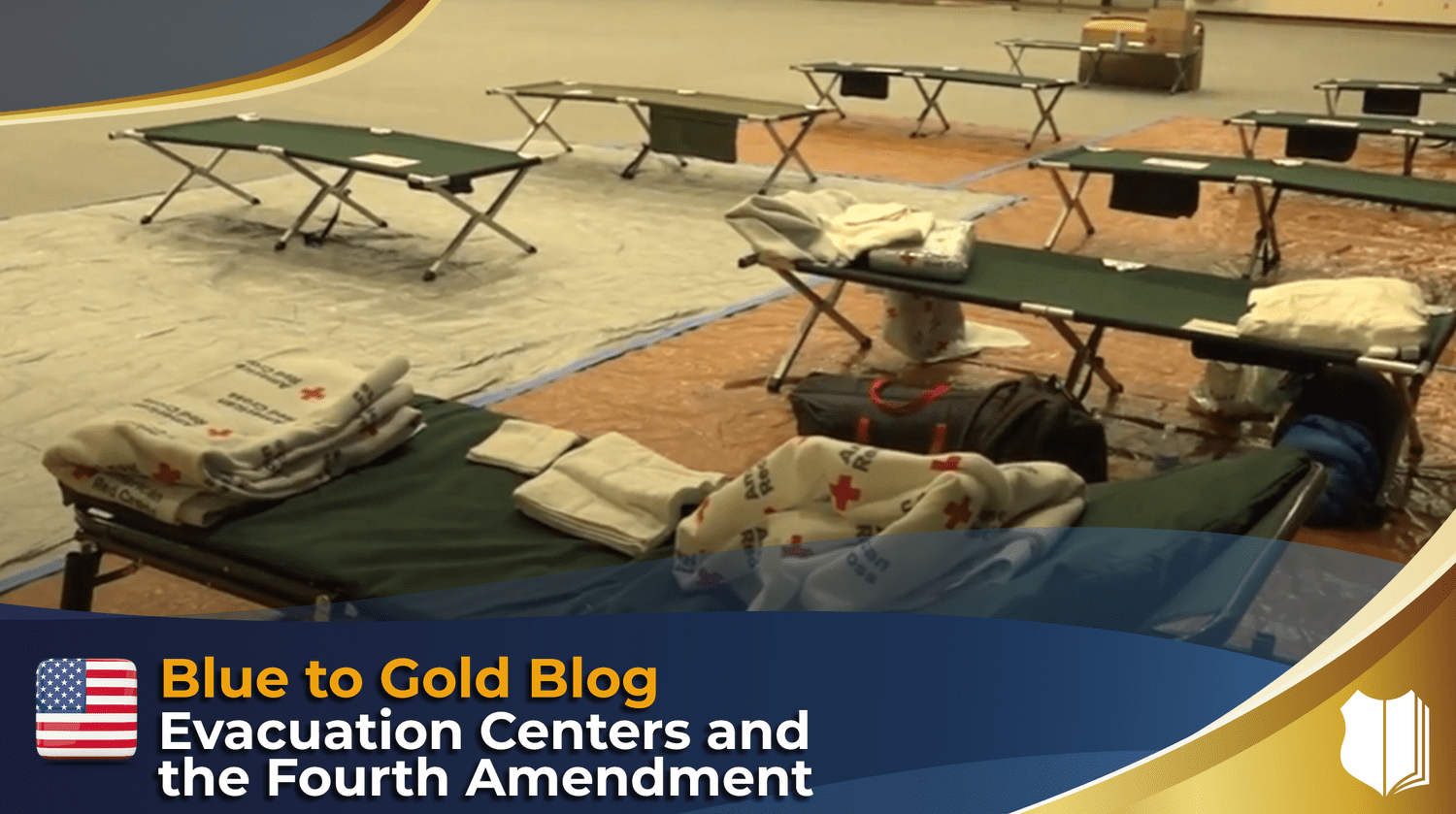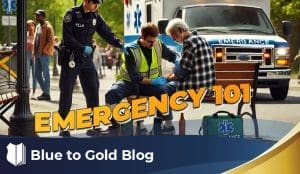How does the Fourth Amendment apply to evacuation shelters?
My name is Anthony Bandiero. I’m an attorney and senior legal instructor for Blue to Gold Law Enforcement Training. So let’s go through this. The question comes from an officer in Florida. After a hurricane or other natural disaster, hundreds of people are displaced temporarily, to live in a gymnasium, in a local school, or an abandoned building that’s been converted to temporary housing.
Now, officers are generally assigned to provide safety and security to these shelters during this time. How would the Fourth Amendment apply to search into belongings or their sleeping quarters?
Here’s what we’re going to do before we start to dive into some q & a here. What case are we going to use to try to give us some guidance about whether or not we can search things that people bring into these evacuation shelters?
Well, one case is a seminal case. It’s called Katz versus United States. And this case establishes expectation of privacy. So here’s what the Supreme Court said, “In order to have a reasonable expectation of privacy, there’s a two-fold requirement. First, that a person has exhibited an actual subjective expectation of privacy. And second, that the expectation be one that society is prepared to recognize as reasonable.”
Thus, a man’s home is, for most purposes, a place where he expects privacy. But objects, activities or statements that he exposes to the plain view of outsiders are not protected, because no intention to keep them to himself has been exhibited.
On the other hand, conversations in the open would not be protected against being overheard, for the expectation of privacy, under those circumstances would be unreasonable. So this society wouldn’t recognize it as reasonable.
Now, let’s talk about evacuation shelters. Certainly, there are some Fourth Amendment protections in these places, right? It’s not like when these people walk into the gymnasium the Constitution is left outside. They have rights that they take with them inside.
Now, it when it comes to searching bags, and when it comes to requiring that in order to come in here, we have to search your bags and so forth, well, you’re going to have to look at your state law and see what the law is on evacuation shelters.
But as far as the Constitution is concerned, the best way to handle that is by consent. That is, if you choose to stay here, you give us consent to search to make sure that you have no dangerous items that you’re bringing into the facility. I can see that being litigated.
But I can also see it as being a valid government search under the administrative search doctrine, where you have a compelling reason to keep these dangerous items from entering this evacuation shelter. That’s another discussion about what factors the courts will look at.
But let’s say that now in the shelter the cop is walking around and patrolling the area, and they see something in plain view. Of course, they can take it . Now, can they keep searching the person’s bags underneath their bed for more evidence?
The answer generally is “No.”
Here’s why. If they keep stuff out of plain view, are they exhibiting a reasonable expectation of privacy? The answer is “Yes.” They’re keeping it hidden, right? And Number Two, is this something that the society would expect as being reasonable? And the answer is “Yes.”
So, the society is not going to say, “Oh, if you’re the victim of a hurricane and you have to sleep at a hurricane evacuation shelter, then the cops can just search for stuff if they have probable cause.” That’s not how that works. For these people, this is their temporary domicile. Obviously, it’s watered down as far as their rights are concerned because it’s not a full-blown home.
But they certainly have an expectation of privacy in their belongings. So in order to get into those belongings, what would you need? Well, their consent. If the suspect wants to give you consent, that’s fine. Or some type of exigency, if you think that there’s a dangerous item in there, and you don’t have time to go get a warrant. If there’s a lot going on, and you believe that by the time you come back with a warrant, the evidence is going to be gone, that could be exigency.
But if you don’t have consent, and you don’t have a recognized exception based on some kind of exigency, then you’re going to need a warrant. I guess you could also try to call it search incident to arrest if you have the right facts, but you’re playing with fire.
Alright. I didn’t really get any scenarios. I didn’t get any fact patterns about what would I think would be okay under certain circumstances. But based on that limited kind of question, that’s my feedback. So, there are some Fourth Amendment protections. I hope this has helped you get it right every single time. All right, stay safe. I’ll see you next time.











